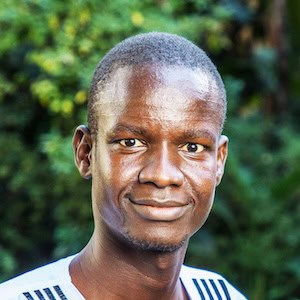-
Disruptive Sanitation: Can 3-Wheeled Carts and Better Septic Tanks Add Value to the Supply Chain AND Clean Up Jakarta?
A Mercy Corps project titled PUSH (Program of Urban Sanitation and Hygiene Promotion) undertook a market analysis of Jakarta’s sanitation industry. Funded by the Suez Environment Foundation, the project found a massive untapped market of potential customers in urban Indonesia. Around 94 million Indonesians live without access to sanitation services and 22 million people—more than two and a half times the population of New York City.
- Categories
- Health Care, Impact Assessment
-
At Rio+20: Will the Realities and the Possibilities for BoP Housing Truly Be Addressed?
There is a vital need to embrace concepts that incorporate the needs of all stakeholders (particularly harnessing the voices of the BoP themselves) via housing models that can handle market immaturities whilst building both at the necessary scale and to globally recognized quality standards. Let´s discard with the concepts that only focus on the short- to medium-term and examine how it is genuinely possible to tackle the complexities of the sector.
- Categories
- Uncategorized
-
From the Front Lines: Thousands of Acres and Jobs – Building a Sustainable Banana Company in Mozambique
I have been focusing most of my time with TechnoServe on a new capital-raising initiative for a growth-oriented greenfield banana plantation. We are in the process of raising in excess of $30 million to plant over 3,000 hectares in the years ahead. The company, which could employ up to 4,000 workers, may grow to become one of the largest producers of bananas in the country.
- Categories
- Agriculture
-
From Protection to Inclusion: Making the Shift to Cashless Payments Meaningful
All around the world, social protection is evolving into much more than a safety net for the poor. It is becoming a tool for financial inclusion and economic opportunity. On Tuesday (June 19) the New America Foundation and CGAP will host a live, Web-streamed event to launch the new Global Savings and Social Protection Website, as well as to discuss the greatest opportunities for promoting savings-linked social protection and payments around the developing world.
- Categories
- Uncategorized
-
NexThought Monday: On the Eve of Rio+20, Creating a Lasting Cookstove Market
The Global Village Energy Partnership works with a group of 400 entrepreneurs to promote clean cookstoves in East Africa. Last year, these entrepreneurs sold more than 275,000 improved cookstoves, indicating that people have accepted the value of more efficient cookstoves, and that they provide a market opportunity for creating a sustainable business model.
- Categories
- Environment
-
Weekly Roundup: Taking the Long View on Capitalism
The Management Innovation eXchange (MIX) bills itself as an “open innovation project aimed at reinventing management for the 21st century. The premise: while "modern" management is one of humankind’s most important inventions, it is now a mature technology that must be reinvented for a new age.” That’s evident from the winning submissions to the Long-Term Capitalism Challenge.
- Categories
- Uncategorized
-
VOZ: From Chile, Bringing ‘Triple E’ Fashion and Connecting BoP Artisans With Luxury Markets
I am grateful that this young product designer, who graduated from Stanford, trained in innovation, cultural anthropology and art, has chosen the Araucanía Region of Chile to launch VOZ (Voice), a start-up that seeks to promote fair trade in luxury ethnic fashion, based on collaborative, environmentally-friendly design and production methods.
- Categories
- Social Enterprise
-
Charting the Change from BPO to BoP: Training the Next Generation of Skilled Labor in India
I’m typical of many of the entrepreneurs and professionals to benefit from the BPO boom who are thankful for the opportunities it has provided, but who also hope to drive India’s nascent Base of the Pyramid sector. The Indian government is spending a huge amount of money in training BoP candidates to skill them in their chosen field and set an aggressive goal to train more than 500 million people by 2022. Dealing with that challenge will require a scalable training solution to bridge the skills gap.
- Categories
- Education










